About Ophthalmology Residency
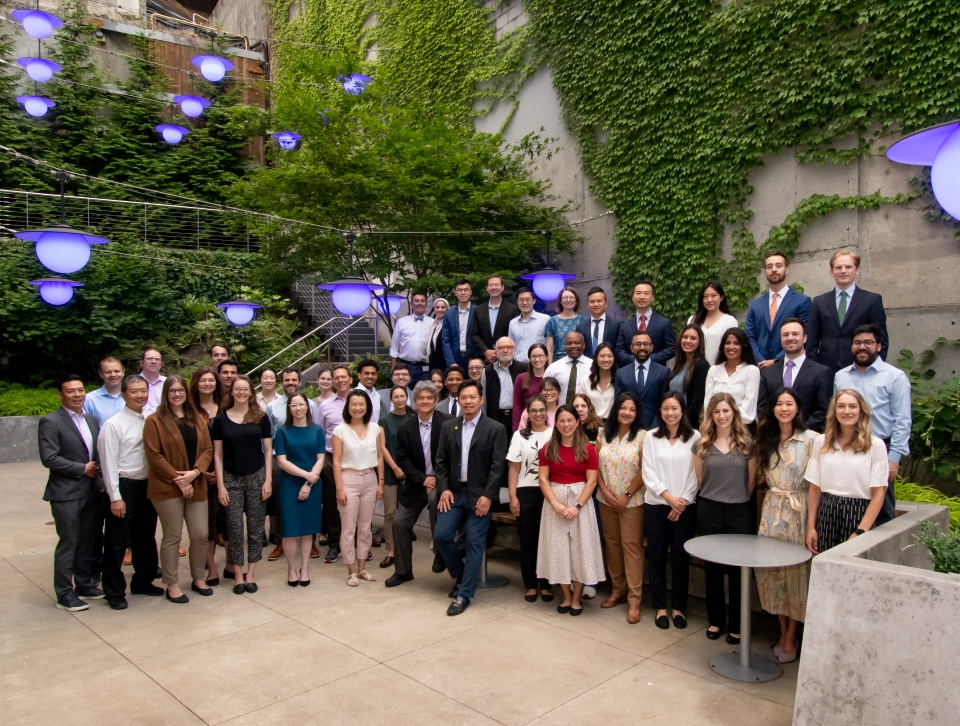
Quick links
Clinical rotations
PGY-1 integrated internship year
Clinical rotations are offered at OHSU Casey Eye Institute, Portland VA Medical Center, and Devers Eye Institute at Legacy Health. The integrated internship year provides a balanced introduction to general medicine and ophthalmology. There are two inpatient medicine and two emergency medicine blocks, with additional rotations in dermatology, anesthesia/perioperative medicine, and neuroradiology. There is an ongoing ophthalmology experience throughout the year, which consists of dedicated rotations, combined rotations with other departments, and didactics. We believe longitudinal exposure to ophthalmology during the PGY-1 year enriches resident learning and long-term retention of knowledge. During outpatient rotations from January to June, our PGY-1 residents also assist our PGY-2 residents with weekend day call. This allows our PGY-1 class to get early call exposure, work together with the class above them, and feel more ready to take primary call during PGY-2 year.
PGY-2 through PGY-4
The residents will transition into 100% ophthalmology experience in the PGY-2 year, building on the fundamentals through comprehensive ophthalmology, retina, uveitis, ocular oncology, pediatric ophthalmology, oculoplastics, neuro-ophthalmology and pathology. In the PGY-3 year, residents continue developing as ophthalmic surgeons and consultants, with emphasis on hospital consultations, glaucoma, cornea, and pediatric ophthalmology. Throughout PGY-2 and PGY-3 year, residents have a half a day of continuity clinic every week at OHSU, where they have the opportunity to direct the care of a panel of patients longitudinally. The final year offers opportunities for independent clinical management and intensive surgical experience.
Call schedule
Our call system ensures our residents are able to see, learn, and manage the vast array of ophthalmic emergencies and pathologies seen at our hospitals. It is front-loaded, with PGY-2 class taking primary call for OHSU and the VA starting mid-July. The exact schedule is determined by each class, which provides schedule flexibility. On average, each PGY-2 resident is on primary call every 5th day. The first 3 months are conducted as buddy call with the PGY-4 class. During PGY-3 year, residents do not take primary call until October. At that time, they start primary trauma call for Devers Eye Institute, where a large portion of the ocular trauma in the state presents. After buddy call, the PGY-4 class also joins the primary trauma call pool. Both upper classes are also on backup call every 10 days for OHSU and VA. Our residents state that calls are busy but not overwhelming and that senior residents and attendings are always available for additional help.
Resident rotation schedule
Surgical education
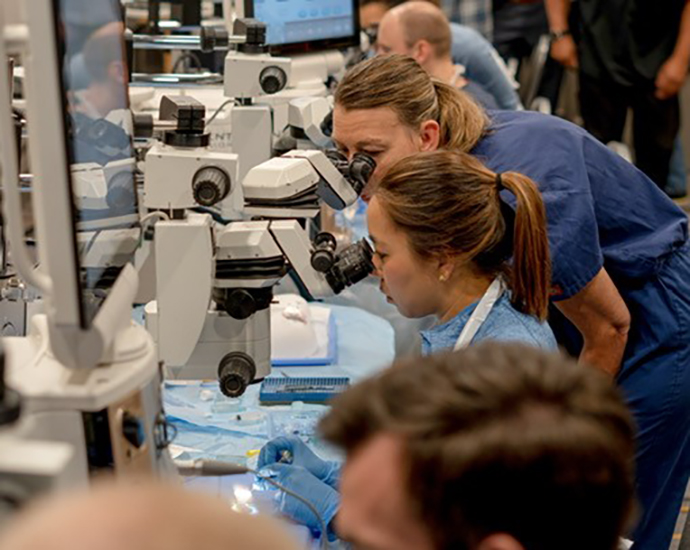
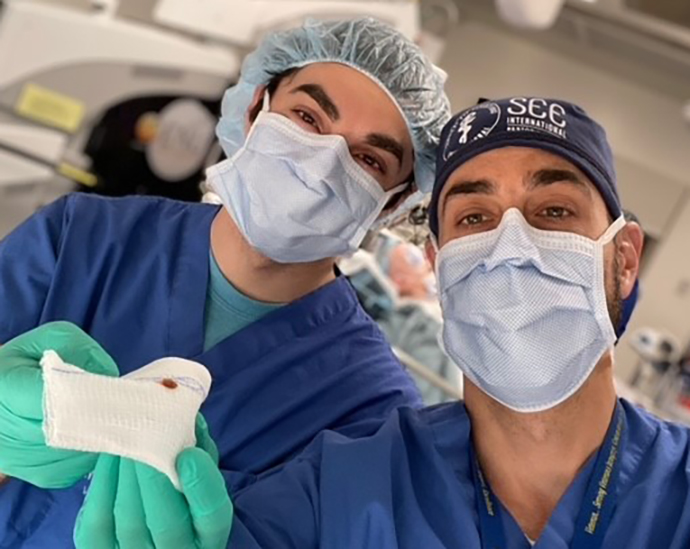
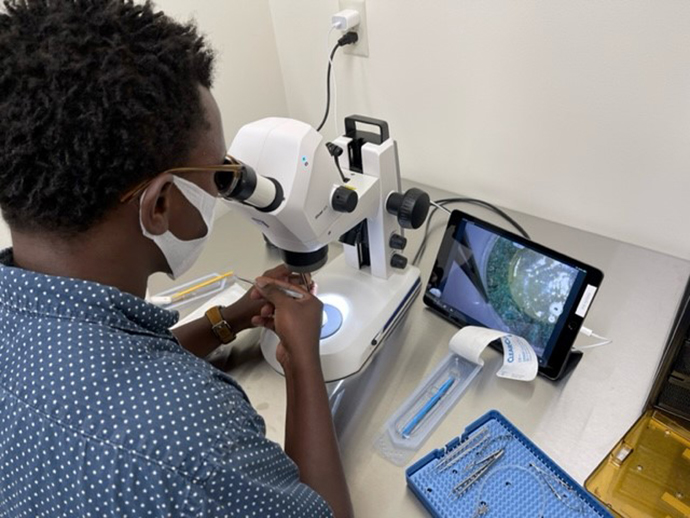
As a residency program, we strongly believe that early surgical exposure greatly enhances resident learning and experience. The program has a thoughtful and highly effective microsurgical curriculum that our residents universally rate as excellent. Before the residents operate in the patient's eye, they are led through a curriculum of wet lab and the EyeSi surgical simulator. This training starts in PGY-1 year, when residents practice suturing and start performing parts of cataract surgery in the operating room. These skills are enhanced during PGY-2 year, with additional experience in subspecialty surgeries. The faculty provides individualized instruction for each resident and the program provides dedicated time for residents to practice and improve. By the end of PGY-3 year, the residents perform 30-40 cataract surgeries as the primary surgeon, along with several subspecialty surgeries. In the final year of the program, the residents perform routine and complex surgeries with an emphasis on quality, safety, and efficiency. Over the last few years, the residents have graduated with around 200 primary cataract surgeries on average. These average numbers have not changed during the COVID-19 pandemic. We continue to work with our residents to ensure they feel confident and ready to operate on their own upon graduation.
Lectures and conferences
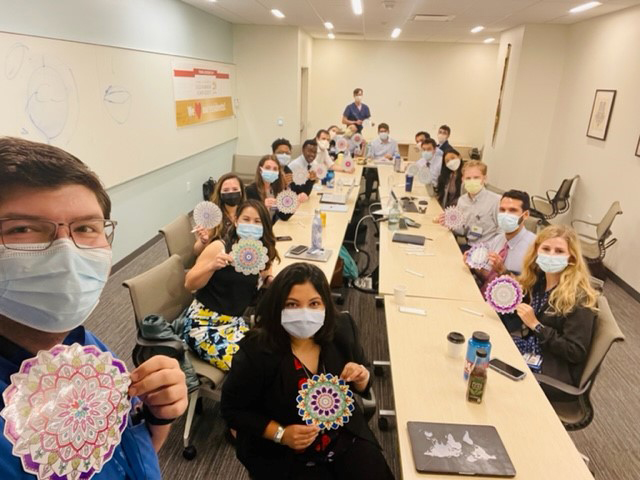
Lectures and conferences are held every Friday from 7 a.m. to noon and on Tuesday evenings from 5:30 -6:30 p.m.. Informed by tradition, education science, and a vision for life-long continuous improvement, the lectures and conferences complement the clinical learning by providing forum for case-based discussions, interactive learning, and wellness. Some key features include:
- Grand Rounds take place weekly and consist of a mix of case presentations from our residents and fellows as well as lectures from local and renowned guest faculty from around the world. View upcoming Grand Rounds events.
- Basic and Clinical Science Course focuses on the core medical knowledge and goes through all subspecialty areas every year.
- Journal Clubs are held monthly and hosted by faculty on rotating basis. The residents discuss the classic landmark articles as well as important recent publications with the faculty in a non-threatening environment.
- Wellness Conference focuses on practical skills to improve resilience and wellness during residency. Learn more about Wellness at OHSU.
Research opportunities
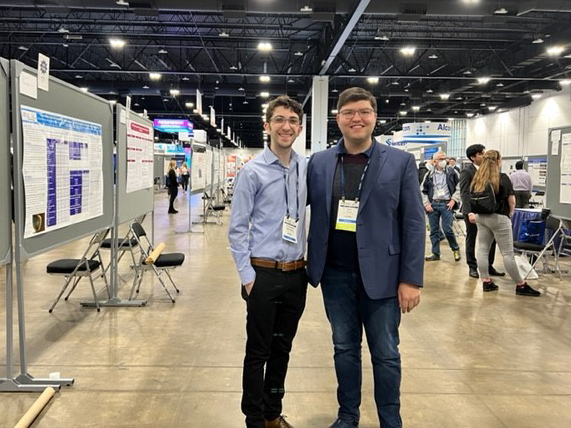
Casey Eye Institute offers exceptional research opportunities with a large complement of clinical and research faculty engaged in projects who are eager to work with residents. Every resident is expected to engage in a research project and the department provides support with dedicated research time, a statistician, as well as support for presenting original works at national meetings. Learn more about Casey Eye Institute's research program.
In the spring of each year, the residents present their work at the Casey Eye Institute Research Day. You can find last year’s Research Day program here to see a sampling of scholarly work done by our residents. A sample list of peer-reviewed publications by our residents is available.
Service opportunities
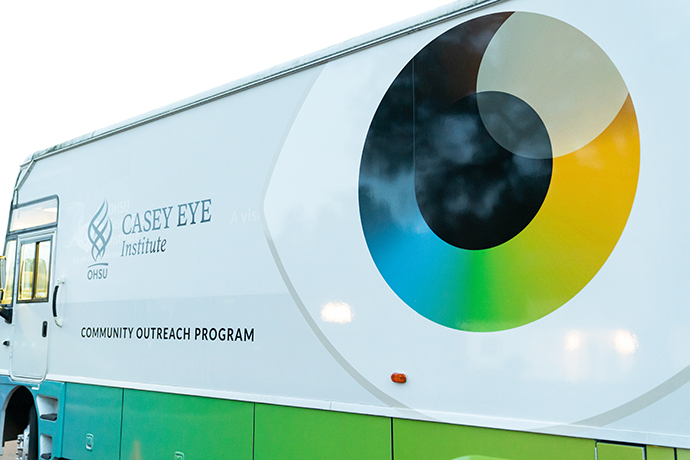
Many of our residents come to Casey with an amazing record of service and they continue to make a difference while they are here. The residents play a central role with the Casey Community Outreach Program Mobile Clinic, which provides free, on-site vision screening throughout Oregon through partnership with community agencies. Led by the residents, the Respectacle chapter of Casey Eye Institute contributes to the campaign to eliminate preventable blindness by cleaning, measuring, and matching donated eyeglasses for distribution in resource-limited settings.
The residents also have an opportunity for a 2 week-long experience to serve in a regional or international setting. We do not envision these as a chance for the residents to supplement their surgical experience, but for adding value for our partners by providing our unique expertise. Examples of recent resident service rotations include performing needs assessment for a residency training program in Myanmar; assisting in cataract teaching course in South Africa; assisting in wet lab course in Angola; and extended vision screening program in rural Oregon.
Mentorship
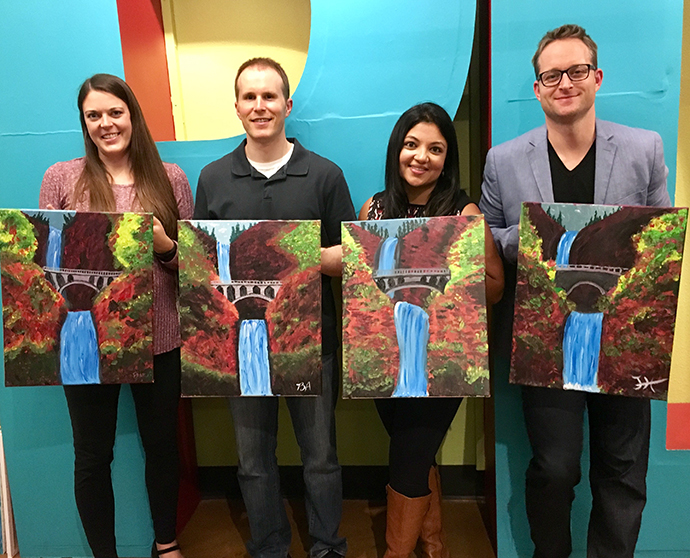
Casey Eye Institute matches every resident with a faculty member through our mentorship program. The purpose of the program is to leverage our faculty’s experience and insight to support residents’ wellness, focus their career development and optimize their learning. Through regular meetings and informal conversations, the mentors advise the residents on their growth and act as their advocate. We believe that mentorship is a key element in helping residents achieve their potential at Casey. Faculty mentors and resident mentees have enjoyed meals, hikes, and paint nights with each other! During COVID, we have remained connected via virtual and socially-distanced means.
"I think the mentorship program here is really strong. We all get paired with a faculty mentor, and my faculty mentor is Dr. Eliesa Ing, which is just been an amazing experience. We have a lot of things in common, and it's not necessarily just career advice but also doing fun things together in our time off. We went apple picking in Hood River where my husband got to meet her and we just had a blast. I feel that is a huge strength here at Casey Eye Institute, that you can connect with your faculty mentors in that way. It definitely makes it a very welcoming and friendly environment that enables you to feel supported and that ultimately enhances your educational experience."
- Radwa Elsharawi, M.D., Resident
